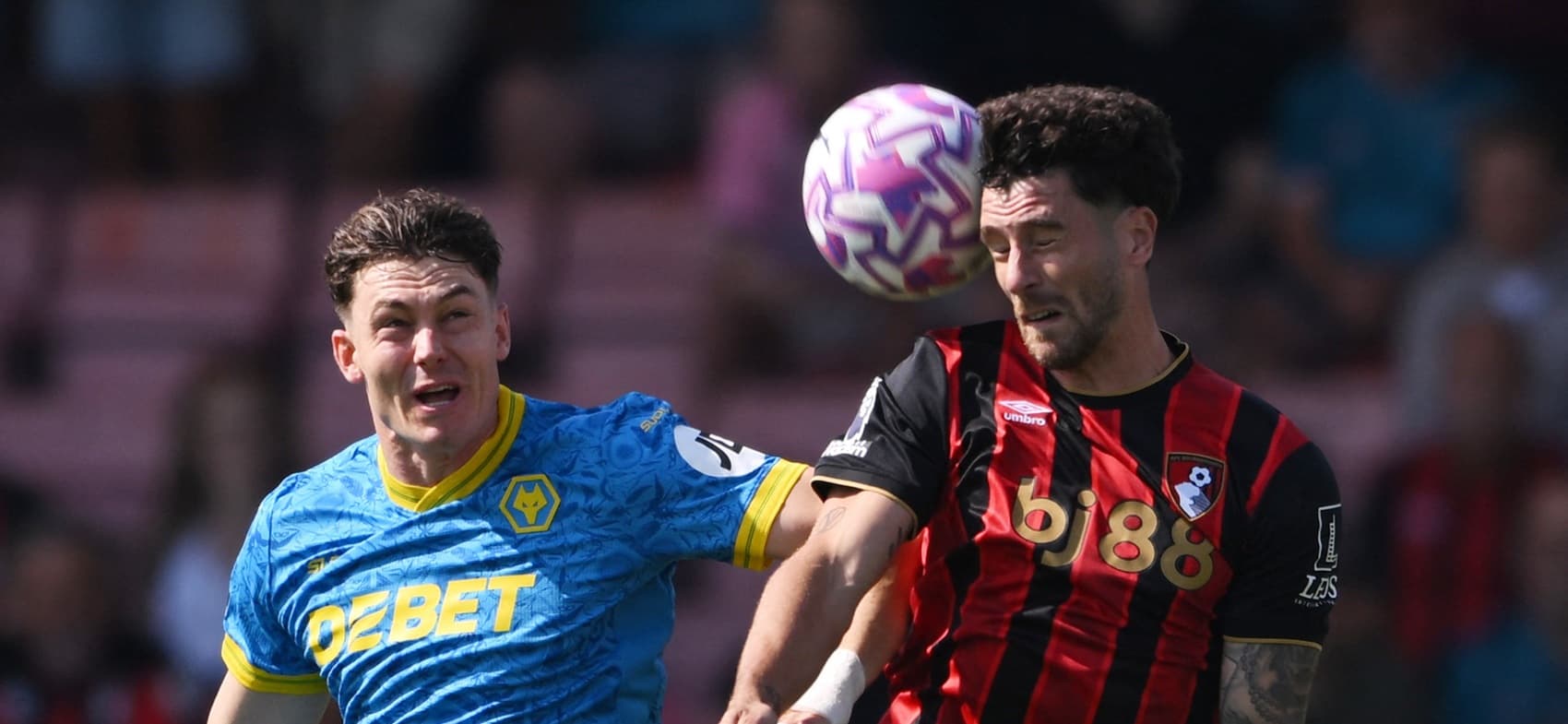Three-time top 200 finisher Lateriser delves deep into defenders, set pieces, defensive contributions (DefCon) and more in his Gameweek 7 article.

It has been some start to the Fantasy Premier League (FPL) season. A lot has changed in this game and if we don’t change, we are failing to adapt. I’ve been thinking about it, and here is my attempt to make sense of it.
Defenders making a strong start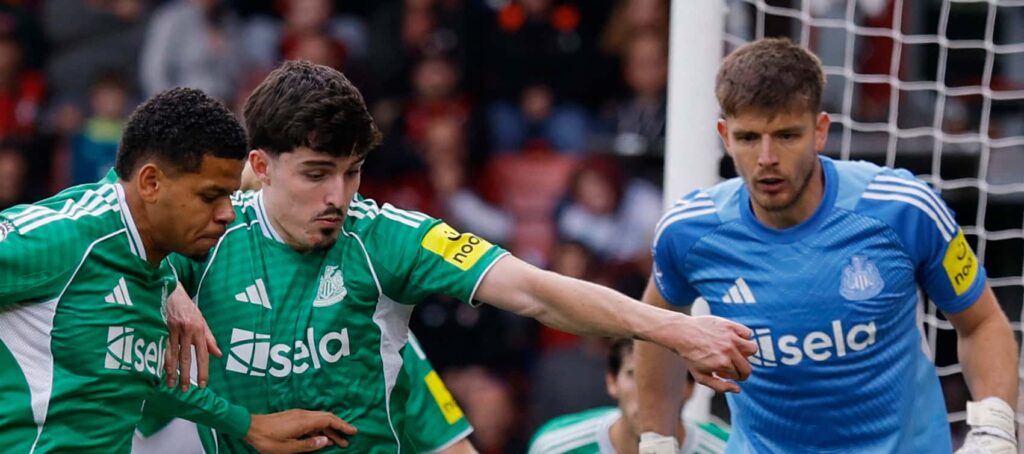
The biggest thing that comes to my mind is defence and our perception of it.
Obviously, defensive contribution points (DefCon) are here and we can’t ignore them, but there’s also something deeper than that. Defenders are ruling. I mean, look at the numbers.
In the top 20 FPL points scorers so far, this is the composition:
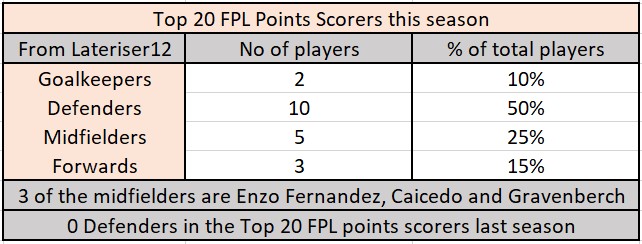
It is pretty drastic that 50% of the top-scoring players so far in FPL have been defenders. You want to take a guess at how many defenders were in the top 20 FPL points scorers last year? The answer is a big fat zero.
Now, how do we make sense of this? It can’t just be the fact that DefCon has boosted the numbers of Fantasy defenders. There’s something more to it, surely?
Set pieces more prominent 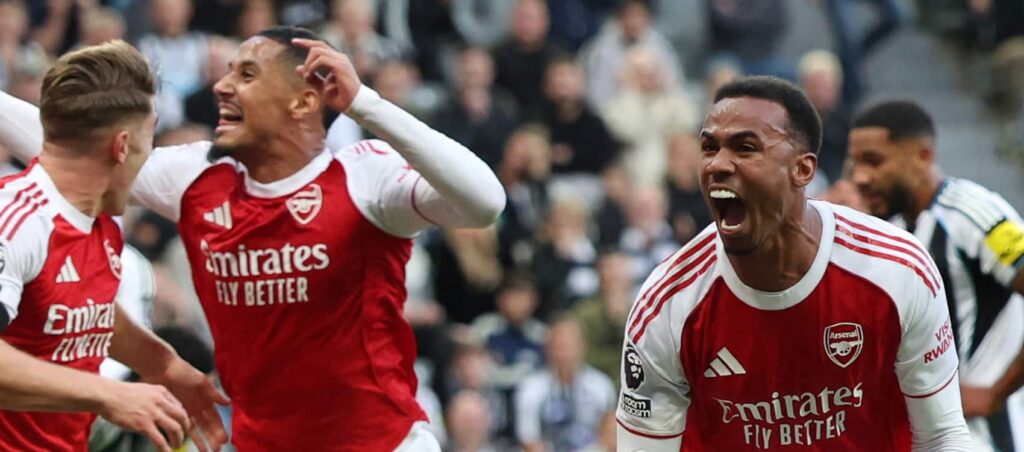
There have been 45 set-piece goals scored so far this season. The total number of league goals in 2025/26 is 157. So, a staggering 28.7% of goals so far this season have come from dead-ball situations.
Let us compare that to last season, when 230 set-piece goals were scored out of a total of 1,115. That’s just over 20%.
So, set-piece goals have gone up by around 10% year on year. That number isn’t insignificant.
With the advent of more data in the Premier League, a lot of the teams are relying heavily on set pieces for goals. Arsenal, of course, were always huge on set pieces. This stat from Tom’s Arsenal article was quite telling:
“Since the start of the 2023/24 campaign, the Gunners have scored 36 goals from such situations in the Premier League, 15 more than any other side in this perod.”
But it isn’t just Arsenal that have a high percentage of set-piece goals (58%). A lot of teams are getting better at this.
Let us look at the data for this season alone:
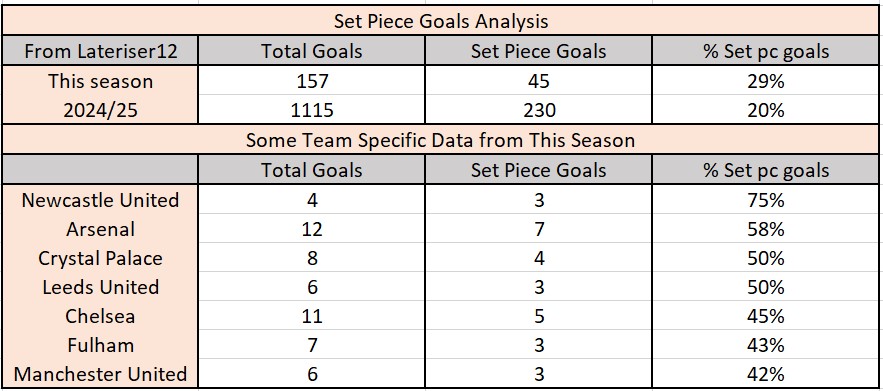
These are interesting numbers and essentially could mean two things.
One, teams are more reliant on set pieces these days and find it a good way to unlock compact defences that are getting more and more organised.
Or two, the below…
Teams not settled yet, high player turnover + intense schedule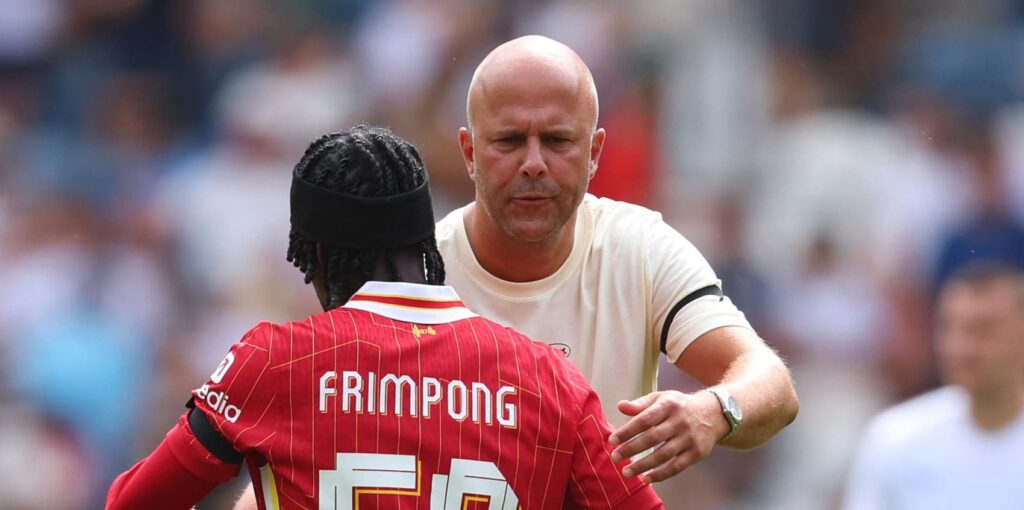
A lot of the teams in the Premier League have had a lot of changes to their squads. The player turnover is at an all-time high and simply put, team chemistry just isn’t in play yet. Even when you talk about top teams that will be high on our FPL radar, such massive changes have happened there.
Liverpool: Two out of the front four are essentially new.Chelsea: Joao Pedro (£7.8m) and Estevao (£6.5m) are new. Cole Palmer is injured.Arsenal: Viktor Gyokeres (£9.0m) and Eberechi Eze (£7.5m) are new. Bukayo Saka (£9.8m) and Martin Odegaard (£7.9m) have been injured in parts.Newcastle United: Nick Woltemade (£7.1m) and Anthony Elanga (£6.9m) are new and Anthony Gordon (£7.4m) got suspended for three games.Manchester United: The front three is new.
In fact, some of the teams that have shown more promise so far this season have been the clubs that have not had too much turnover and have had a fairly settled XI – Crystal Palace and Manchester City come to mind. To play devil’s advocate, Aston Villa have looked poor without adding many fresh new faces to their squad. Even then, though, they’re having to manage without Messrs Rashford and Asensio, who had an impact in 2024/25.
In addition, a lot of the big European teams have deep squads now, given the sheer workload. Rotation is already raising its head. The ‘best 11’ or the ‘first-choice 11’ is an outdated concept, with managers rotating based on the heavy schedule and having the squad to do it. In addition, managers are paying closer attention to specific match-ups (note what Arne Slot said about “overloading the midfield” after Gameweek 6), which is why I simply don’t like the ‘first 11’ term anymore.
Even someone as robust as a Mohamed Salah (£14.5m) was rested last night in the Champions League, which is quite telling.
Fewer whipping boys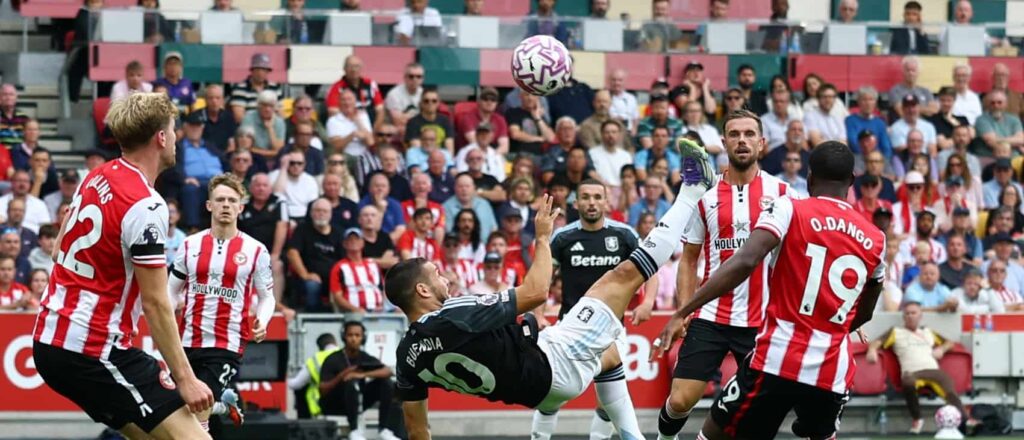
One thing I wanted to talk about when it comes to open play threat is that the three newly promoted teams have learnt from their predecessors. The fixtures in which you can predict that your attacking assets will ‘haul’ are fewer.
The new boys have, so far, shown us that they are capable of playing a pragmatic mid-to-low block and defending admirably.
It’s also worth noting from an FPL point of view that these promoted teams have given us defenders like Omar Alderete (£4.1m) and Joe Rodon (£4.0m), who are capable of clean sheets, DefCon points and even set-piece goals.
Direct football means more DefCon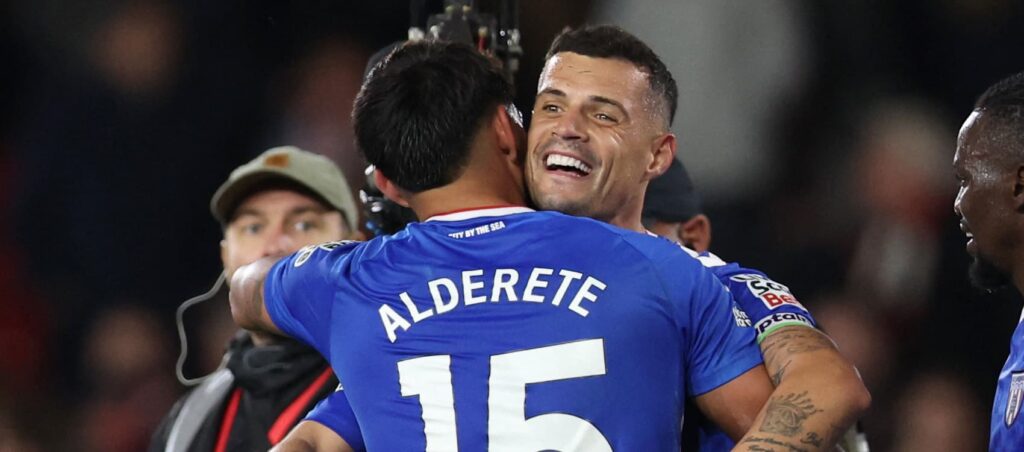
One thing I haven’t been able to shake off is that the DefCon hit-rate is seemingly higher than last season.
I think the reason for this is that there is a cultural shift in football, where teams are playing a lot more direct than they did in the past few seasons. It’s still early days but the number of ‘long passes’ has gone up from 802 to 840 per Gameweek, on average. That’s an increase of just short of 5%.
We’re seeing more and more teams okay with going long. We’re seeing more long throws. We’ve already seen the numbers with set pieces.
More direct play, more clearances and recoveries – that’s the theory, anyway.
So, DefCon points may be even greater than the numbers we saw last season – and this is simply something we can’t ignore.
What is the FPL learning here?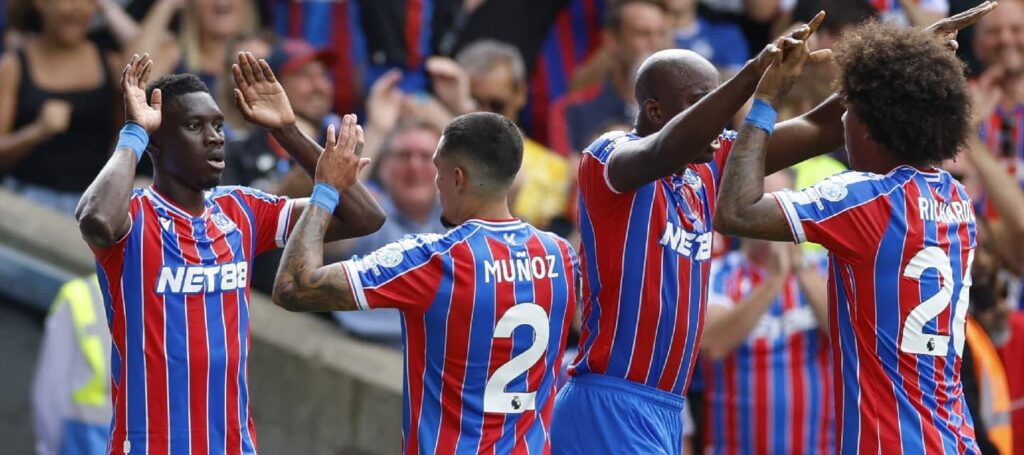
Are set pieces going to continue to dominate? And with the addition of DefCon, is assessing open-play goal threat in FPL just not as important? Not fully, in my opinion.
But we can’t ignore set pieces at present and, amongst defenders, centre-backs tend to be bigger corner magnets than full-backs.
Formation shift?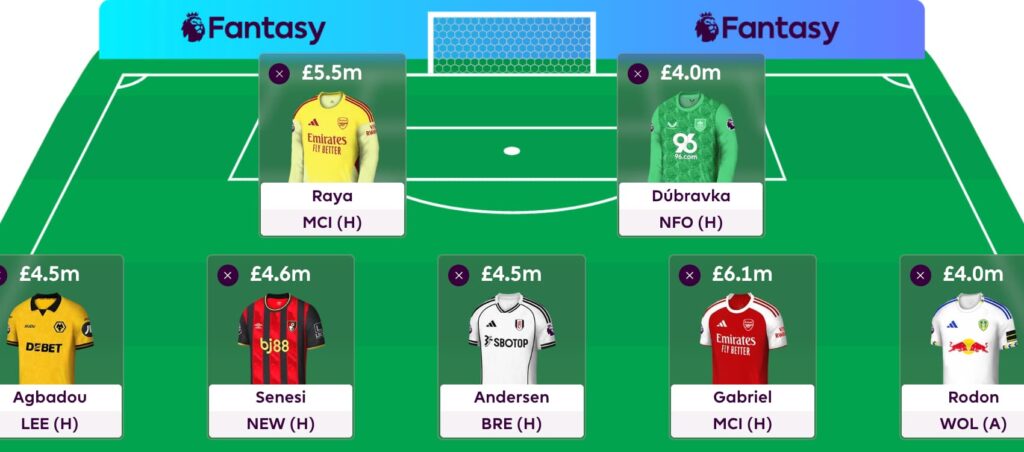
If this continues to persist, perhaps when we’re building a Wildcard squad, we should shift to a four (or five!?) at the back.
We’ve seen central defenders not only have a high floor this season but with, set-piece threat, the chance of a clean sheet and DefCon points, their ceiling is considerably high, too.
Are they going to be more reliable than the Ismaila Sarrs (£6.4m) and Yankuba Mintehs (£5.9m) of the world? That is something we have to assess on an ongoing basis.
What a few £4.0m to £5.0m centre-backs offer us is also the ability to go bigger in attack and build drafts that perhaps can target more of your penalty-taking premiums. It’s feasible to build a strong squad containing both Salah and Erling Haaland (£14.4m), for example.
90-minute monsters are important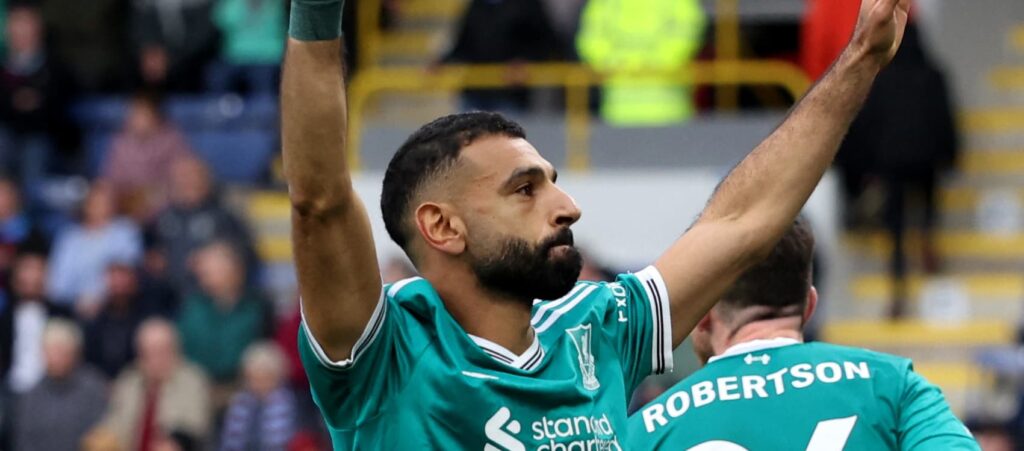
We’ve seen so many late goals so far this season. Penalty-taking 90-minute men have given us a lot of late returns already and with schedules getting more intense due to European football, this durability will become increasingly important.
When teams play a compact mid-to-low block, a lot of their focus and energy drains in the last 10-15 minutes. We’ve seen so many late goals this season, which is why 90-minute monsters are just very important in FPL.
Things will be better from open play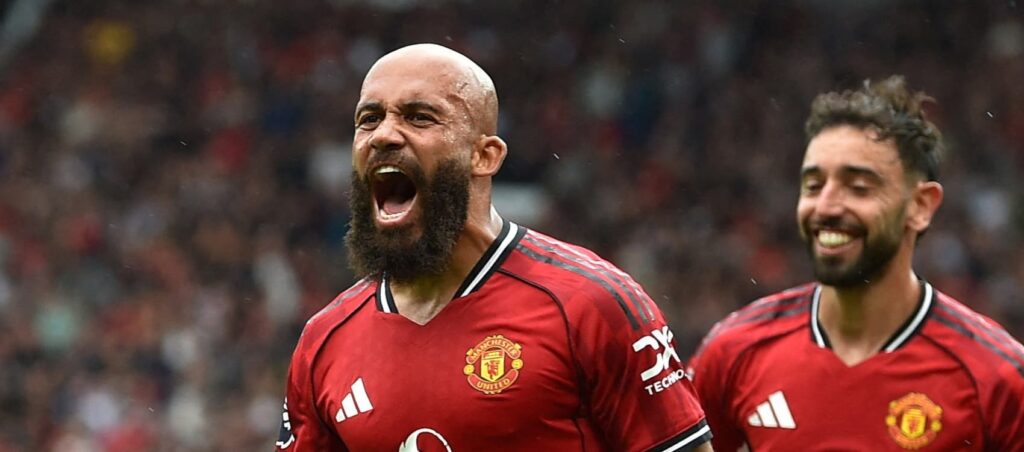
I do think that, as time passes and teams and new players gel, things will get better in open play.
We already saw Arsenal click to an extent against Newcastle United with a promising display (that said, Gabriel Magalhaes (£6.2m) did get the goal!) and the trend should be upwards in terms of open play threat, in my opinion.
Eventually, picks like Sarr, Saka and Bryan Mbeumo (£8.1m), who are (now) largely dependent on open play threat, will come through.
We’ll discuss more on this week’s episode of The FPL Wire, which you can watch here:


VOTE FOR FANTASY FOOTBALL SCOUT IN ‘BEST IN FANTASY FOOTBALL – ORGANISATION’ HERE

